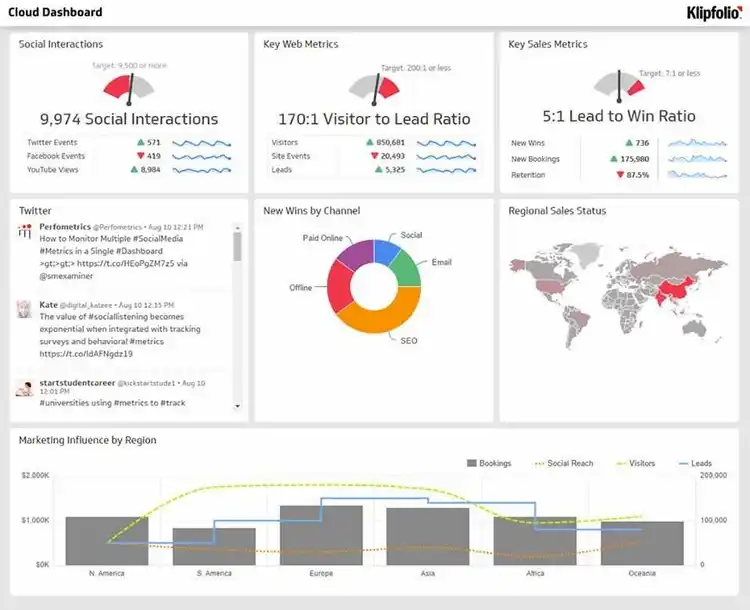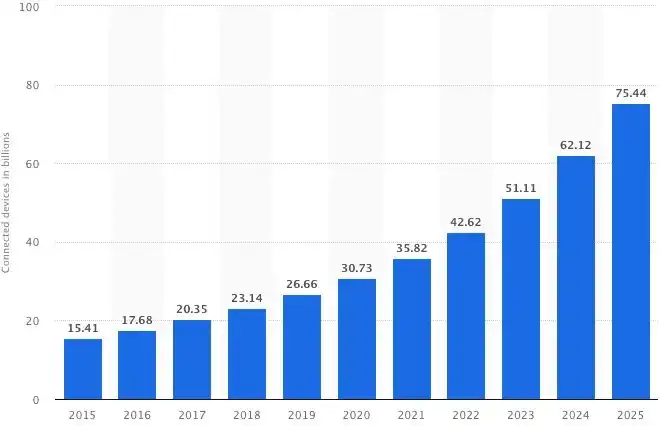Machine Learning And Cloud Computing

Machine learning (ML) is one of the most used technologies in the world. It provides smart business solutions for companies of all sizes. Machine learning works like this: developers use data to develop algorithms that learn patterns. These patterns then find insights that add value to a company.
The technology then makes predictions from that data. This is called predictive analytics. It can do so without human intervention. Some of the biggest companies out there use machine learning, including Netflix. The online streaming site saves more than $1 billion a year using technology.
Meanwhile, cloud systems streamline operations, save costs and make it easier to scale on demand. Machine learning can be easily integrated into the cloud. Doing so can benefit your business in many ways such as by improving your data security. Machine learning creates smarter, more efficient and more focused cloud operations. It does so at a low cost.
Business Intelligence Set to Become Smarter
Business intelligence is key to the success of a company. It uses ideas and technologies that use data to make better decisions. It can benefit your business intelligence in the cloud. Doing so makes it easy for your business to host applications on a virtual network. You can leverage your business intelligence data in several ways. These include dashboards, key performance indicators, and analytics (also consider checking out this perfect parcel of information for a data science degree).

Source: https://www.klipfolio.com/resources/articles/what-is-cloud-business-intelligence
Business intelligence is more advanced when combined with machine learning. This is because it helps companies find flaws in data or algorithms in real-time. The technology identifies these anomalies and fixes them as they happen. It also spots errors ahead of time.
There is also a high demand for analytics, as well as dashboards that refresh in real-time on the cloud. Businesses use predictive analysis to garner historical data. They use such data to make suggestions in real time. This data helps them make predictions on the type of business intelligence the market needs.
You may also like: Machine Learning for Dummies - A quick guide
Machine learning helps your business intelligence team use data in a smarter way. This is because leaders use patterns from this data to make better decisions. These decisions let you connect with customers at a deeper level. Doing so lifts your profit margin.
Cloud and Conversational AI Are Match Made in Heaven
Siri and Alexa are among the most popular voice-activated assistants nowadays. These assistants make our lives easier as we can ask them anything and get an answer. Chatbots are also everywhere today. These make it easy for customers to communicate with businesses through text. These robot assistants use large data sets and deep learning technology to answer customer concerns. And they do so in under a minute usually.

These technologies are part of conversational AI. They benefit companies’ customer service branches as they are always available. They are also quick to respond, and their answers are accurate. However, there’s a limit to how much information you can program into these digital assistants. They have to be frequently updated to provide customers with accurate information. For example, a retail customer may want to know information about their most recent order. A chatbot that doesn’t update in real-time may be unable to answer them.
These assistants -- equipped with machine learning -- can operate at a higher level on the cloud. This is thanks to a large amount of data available on the cloud. It makes sense to combine this capacity with machine learning algorithms, as well as the deep learning of conversational AI. This helps businesses optimize their customer service functionalities. It lets them do so to a level that human workers can’t reach.
You may also like: Artificial Intelligence and Machine learning: How are they related?
Your business can achieve a lot when it combines conversational AI with the cloud. Companies can use data from text and voice conversations to make future decisions. They can also use data to enhance the cognitive ability of chatbots. They can better help customers based on what they've talked about before. Companies do have to be transparent about the data they compile.
Companies can also use data from interactions to become better marketers (Here's the perfect parcel of information to learn data science). This data helps them decide what digital medium to use for advertising. Conversational AI combines with the cloud to reduce errors as well. It helps to know where these assistants may be malfunctioning. This lets you improve your digital solutions until they’re perfect.
Businesses can use conversational AI to create more organic conversations. You can use technology to become better at meeting your customers needs. The goal is to connect with customers and make them happy.
Better Cloud Security with Machine Learning

Source: https://www.freepik.com/
Security and privacy are important to every company. Your reputation depends on how you protect your customer's data. This is because these tenets affect how customers perceive you. Security is necessary for a time when there are data breaches everywhere. Major businesses are losing customers and market ground as a result (also consider checking out this career guide for data science jobs).
Shifting your operations to the cloud will not always help your data's security. It only does so when you have the right safeguards in place. There is a large amount of data that a cybersecurity system produces. The sheer quantity of data makes it impossible for any human to break down and analyze. What you can do is utilize machine learning technologies to use this data to detect threats better.
It helps to program your cloud security with machine learning to develop patterns. Use these patterns to spot security abnormalities, which may be cyber threats. The more data you add to your security, the better. Your machines will learn more patterns, and technology will become stronger. It will help you identify criminal activity or security flaws.

Machine learning does this by keeping tabs on what it considers to be normal. These include the usual login time and place of employees. It also includes the content they access and other common activities. The system will flag any deviations, including strange log-in hours or locations, as potential threats. These systems can then answer these threats in a swift and thorough fashion.
You can use the technology to shut a certain user out if the account is compromised. It can also inform a human worker of an abnormality. This means that your security system can detect unusual activity and shut down within hours. This ensures that any dangerous code does not spread through your cloud systems. This would allow criminals to compile user data. Businesses can use this technology to create a warning system. Such a system will provide several days of warning, giving it a chance to take action in a timely fashion.
Machine learning technology that identifies cyber threats is beneficial. Not only does it protect your cloud systems, but it also protects user data. It also gives human workers more free time to focus on more complex threats.
Internet of Things (IoT) Will Operate Better in Cloud With ML
The Internet of Things space is moving at a fast pace as there are more connected devices than ever. They are available to us all, and such technology shows no signs of slowing down. Statista predicts that there will be close to 31 billion connected devices in the world by 2020.

Source: https://www.statista.com/statistics/471264/iot-number-of-connected-devices-worldwide/
There is a lot of potential with the Internet of Things devices moving forward. These include self-driving cars, smart home hubs, and healthcare applications. The latter could even save lives. Such devices produce large amounts of data, which you can store in the cloud. Machine learning helps connect devices in a similar way to cloud security.
Connected devices linked to the cloud can use machine learning to spot issues before users do. You can access data compiled in the cloud with machine learning, informing the user if a device isn’t working. You can offer these warnings before the entire system is at risk.
You may also like: Top 10 Algorithms every Machine Learning Engineer needs to know
Machine learning can also learn patterns when connected devices often malfunction. You can use the technology to prevent and fix issues with these devices in an automated way. This technology can save lives with self-driving cars. It can do so with the vehicle’s sensors that send data to the cloud on its surroundings. You can then use software equipped with machine learning to avoid collisions.
Cloud and ML Are the Future, and the Future Is Now
It's no secret that we’ve moved away from relying only upon on-premise infrastructures. It is also hard to imagine a world without artificial intelligence at this point. This is because our business solutions use these technologies every day. The cloud is also key, as it has a large data repository. Such data is scalable, flexible, and efficient. Meanwhile, machine learning is transforming the way we leverage such data.
There are many ways businesses are getting ahead with cloud solutions. Nowadays, these involve machine learning because of how well the two work together. Such ways include making more informed decisions through business intelligence. Machine learning in the cloud is also saving lives using connected devices. It also offers better customer service with conversational AI. And technology isn't going anywhere because of how much it can help your business. From boosting profitability to securing your data, machine learning in the cloud is the future.